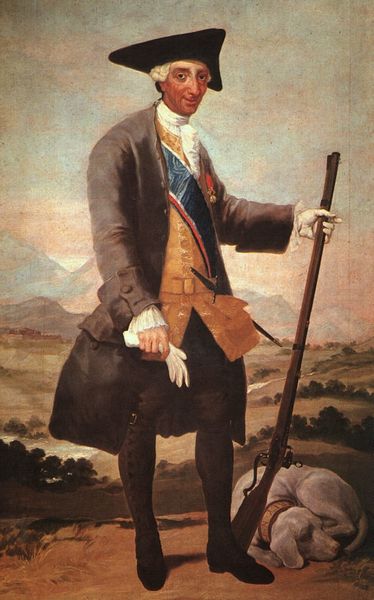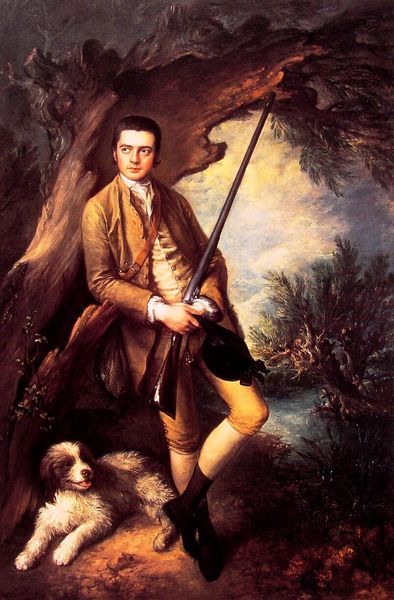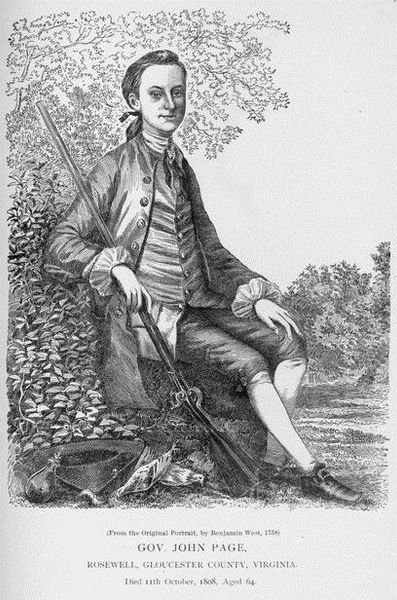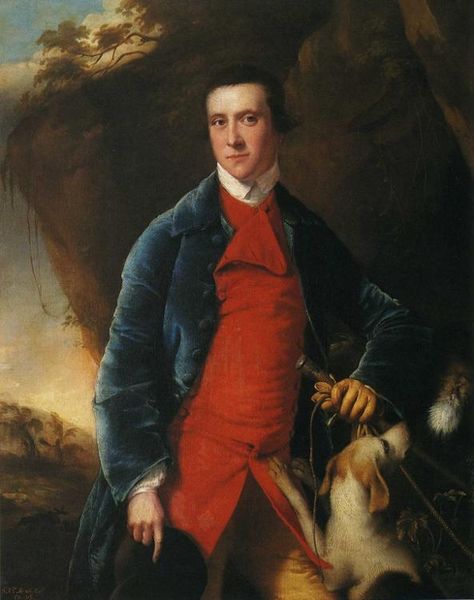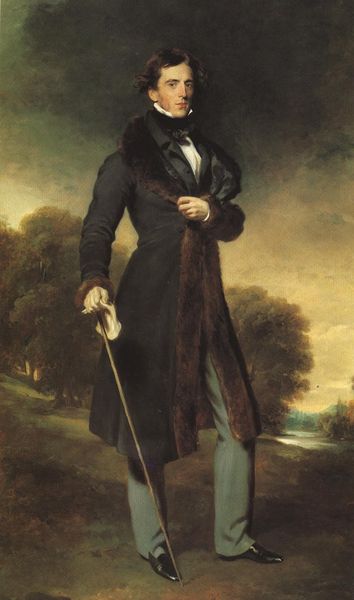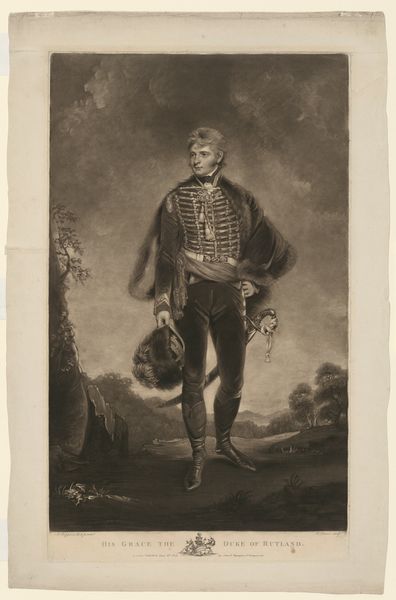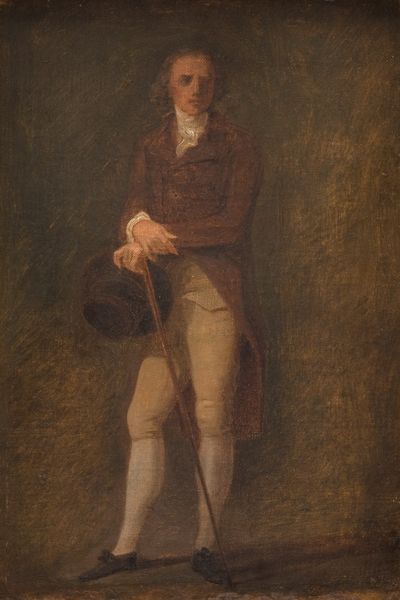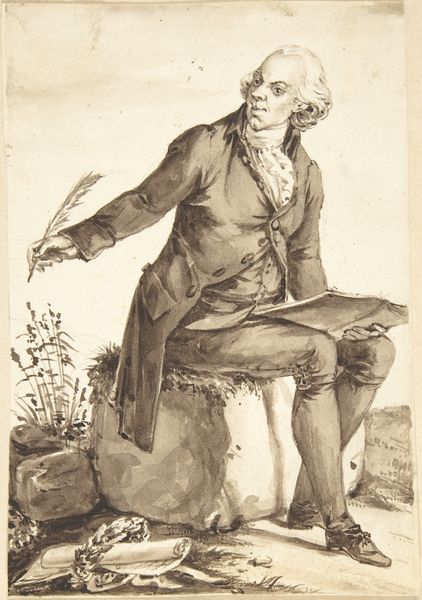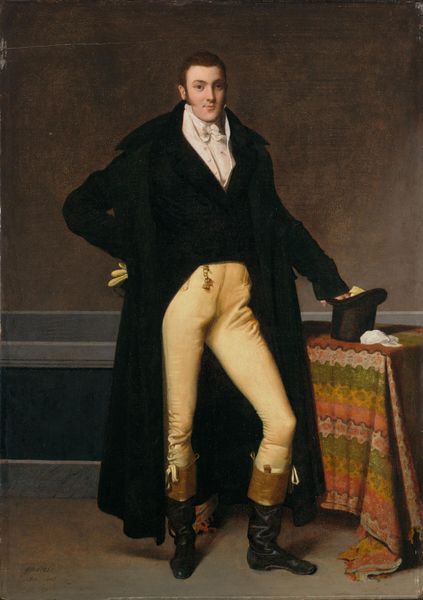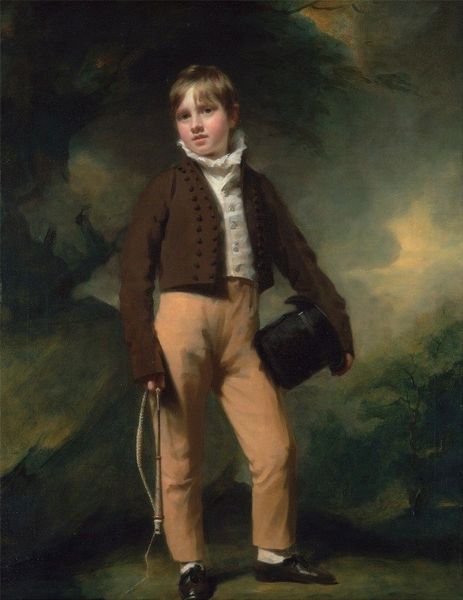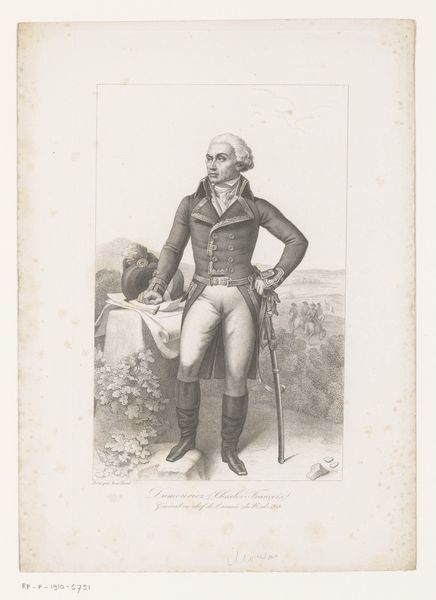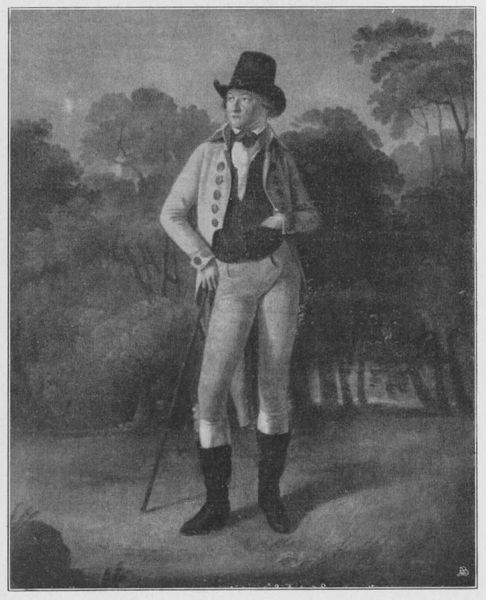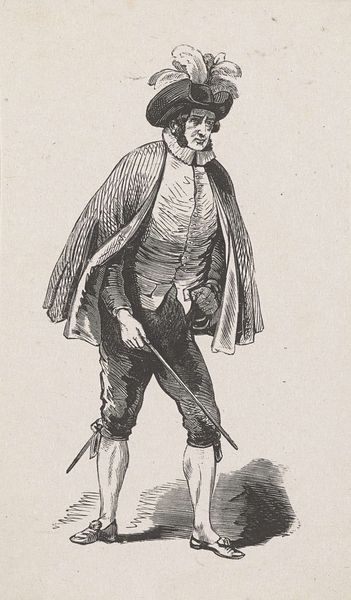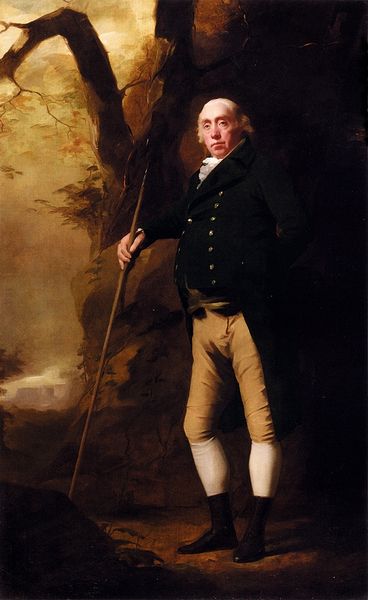
oil-paint
#
portrait
#
oil-paint
#
landscape
#
figuration
#
oil painting
#
romanticism
Dimensions: 240 x 148 cm
Copyright: Public domain
Editor: Here we have Henry Raeburn's "Portrait of Bryce McMurdo," painted around 1800. The oil on canvas gives a real sense of calm, the figure integrated within this idealized natural setting. What compositional elements strike you in this piece? Curator: The formal arrangement is, indeed, compelling. Observe the triangular structure formed by the figure’s body and the fishing rod, anchoring him within the landscape. Note, too, the chromatic harmony. The muted greens and browns of the background subtly enhance the man’s attire and pallid skin tone. Does the painter not balance both vertical and horizontal forms and colors? Editor: I hadn't noticed the significance of that compositional geometry until you pointed it out. The color balance is beautifully understated as well. It really locks in on this one pale guy against the Scottish wilderness. It’s a clever interplay of formality and raw nature. Is that tension intentional, would you say? Curator: Undoubtedly. Consider how the rough texture of the rocks contrasts with the smoothness of McMurdo’s garments, setting off the wild with the domestic. Furthermore, this tension could point to Romanticism’s engagement with both the natural and human worlds, often within a single frame. Editor: So, we have a portrait, yes, but the carefully constructed setting tells just as much of the story. Thanks, that helps a lot in reading what the artwork tries to "say". Curator: Indeed. Studying the interplay between subject and setting refines our grasp of the artist’s skill.
Comments
No comments
Be the first to comment and join the conversation on the ultimate creative platform.
